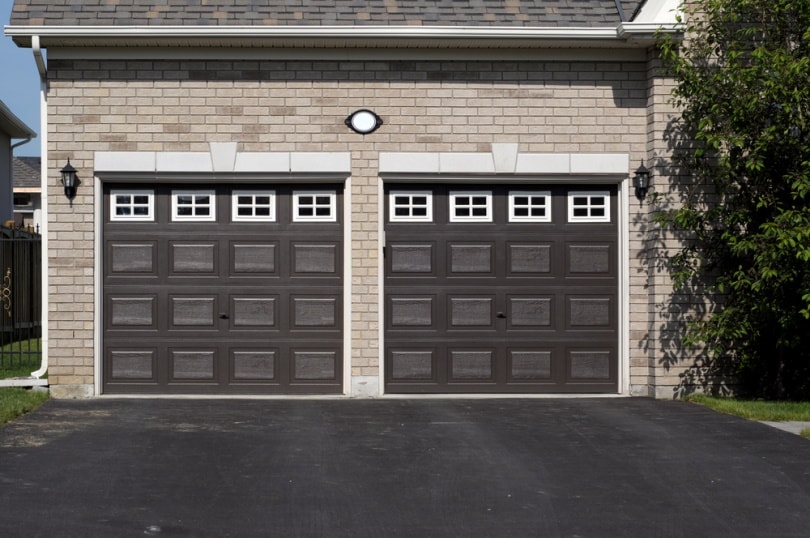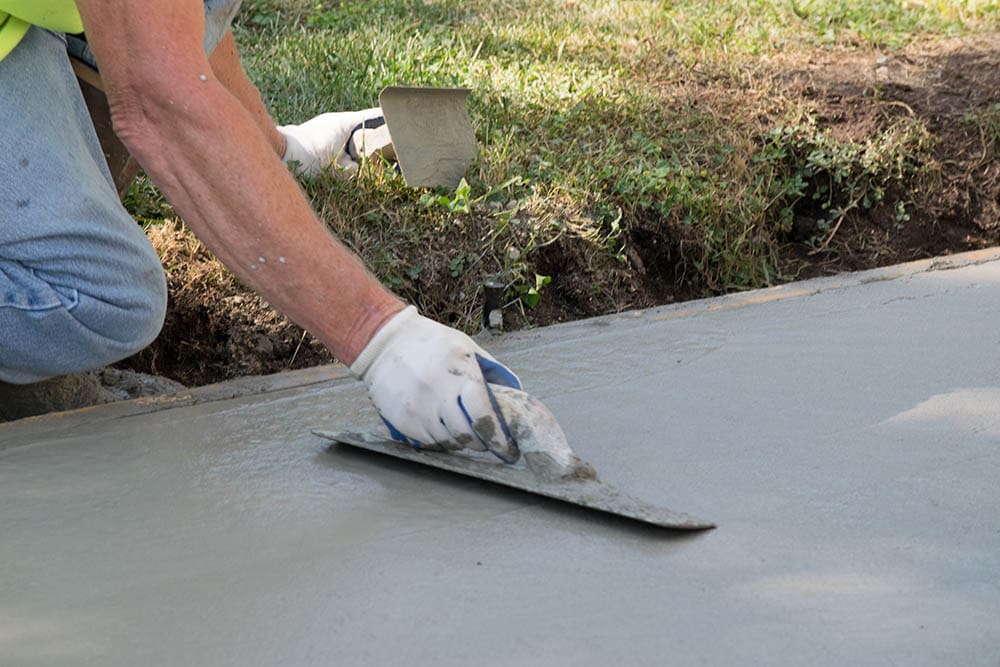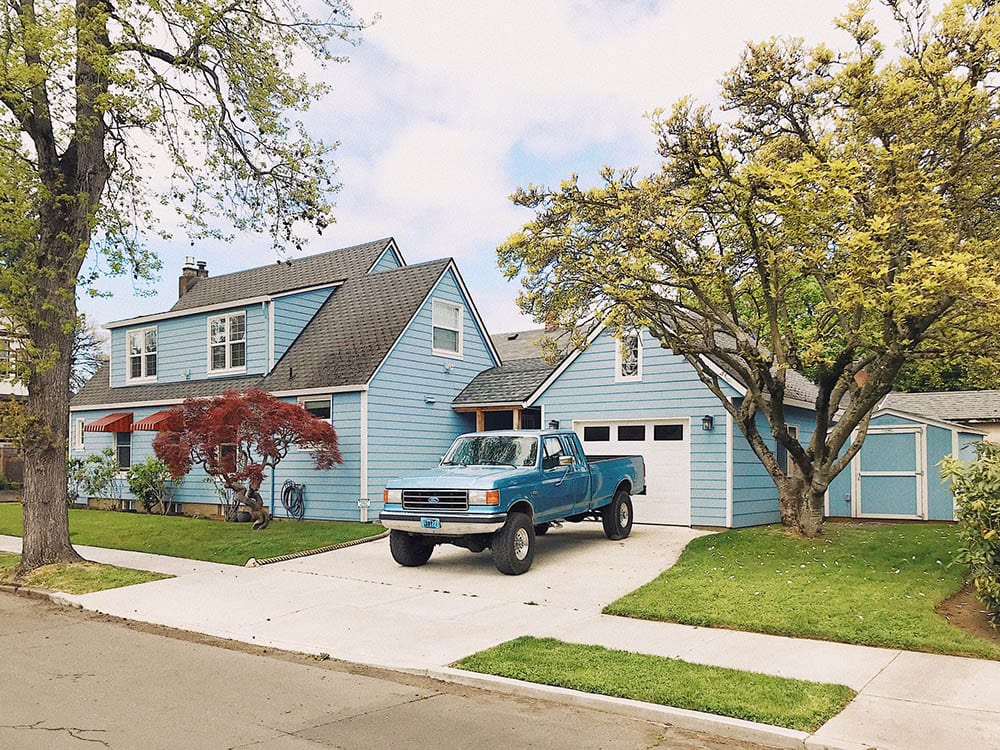How Thick Should an Asphalt Driveway Be? Types, Factors & FAQs
-
Pete Ortiz
- Last updated:

Whether you are planning on building a driveway on your property or you are thinking of building a commercial driveway, there are a few factors you will need to consider before starting, especially if you are making a driveway out of asphalt. The thickness of an asphalt driveway is a crucial feature in having a solid and durable driveway that will last for years.
Before starting this project, it is essential to understand the ideal thickness of asphalt your driveway should have. When it comes to residential driveways, the optimal thickness is between 2 and 3 inches, while for a commercial lot or a heavy-duty lot, 4 to 7 inches of thickness is ideal. You will also need to consider the sub-base, an additional layer underneath the asphalt, which needs to be from 3 to 6 inches thick, depending on the type of driveway.
The Importance of Having a Thick Enough Driveway
The thickness of the asphalt driveway may be a crucial aspect of having a long-lasting and durable driveway. It is essential to build a driveway with enough thickness to support all the weight and pressure on the surface. The thickness of the driveway will mostly depend on the purpose it will serve—whether it will be a commercial lot or a residential lot.
While this may not seem like a significant feature, the volume of traffic that the driveway will have to take will determine how thick the asphalt will be, so it is essential to have a proper layer thickness of asphalt. Maintaining the correct thickness will ensure you have a driveway that won’t degrade, crack or wear out after a couple of years.

What happens if the asphalt is too thin?
When the asphalt on your driveway is too thin, it won’t distribute the pressure evenly, so the asphalt underneath all the pressure will start to compress and eventually crack. It will begin with a small, harmless crack, but the damage will quickly spread on all sides, causing your driveway to deteriorate permanently.
How Thick Should an Asphalt Driveway Be?
The thickness of the asphalt driveway depends on many different factors. Even though the thickness varies, you can choose three standard sizes depending on your needs—2-inch, 4-inch, and 9-inch asphalt driveway. Once you decide what you will use your driveway for and how long you wish for it to last, you will find out an ideal thickness for it.
Before You Begin
Whatever the purpose of your driveway, it is crucial to have a sufficient sub-base. The sub-base is a layer of aggregate material spread under the asphalt, which is necessary to add additional support for surfaces used by vehicles. The materials that go into the sub-base are either granular or cement-bound. It is essential to have a stable, durable sub-base so that when the surface asphalt starts breaking down, you can easily replace it with a fresh layer of asphalt on top of the existing sub-base.
Residential Driveways
It is recommended to build residential asphalt driveways on top of the soil with excellent drainage, such as rocky, gravelly, or sandy soil. Residential driveways take a lot of traffic but not as much as commercial driveways, so an optimal asphalt layer should be 2 to 3 inches thick. Granular base aggregate is necessary for residential driveways, and the optimal thickness would be 6 inches.

Heavy-duty commercial driveways
Heavy-duty commercial driveways need to support the weight of large trucks, so they need to have a strong structure that will handle the load. That’s why such a driveway should be anywhere from 4 to 7 inches thick. For additional support, a 3-inch aggregate base layer needs to be below the asphalt.
Parking lots
Parking lots should have a driveway with at least 3-inches of asphalt and a 6-inch granular base aggregate below. For the driveway to be functional, the soil underneath should preferably be well-draining.
- Related read: Can I Park an RV in My Driveway? Are There Restrictions?
Factors to Consider
How frequently will you use the driveway?
When deciding on the thickness of the asphalt driveway, it is essential to consider the amount of traffic that the driveway will have to endure. Driveways, where traffic is frequent with heavy trucks or buses, will have to be much thicker than residential driveways that only have to hold one or two cars simultaneously. The number of vehicles using the driveway and how heavy the vehicles are will decide how you should build your asphalt driveway.
Soil type
Before determining the thickness of your asphalt driveway, you should be aware of the soil type you have on the lot, as it plays a significant role in the process.
- Sandy soil
- Gravelly soil
Other soil types like clay and loamy soil might not be the best for an asphalt driveway, as you’ll have issues achieving appropriate compaction. The soil must be solid and stable to act as a good structural base.
In many cases, you’ll need to either substitute the soil or add an aggregate layer underneath to create sufficient compaction.

Properly Maintaining Your Asphalt Driveway
If you installed your asphalt driveway correctly, it should last you for years to come. However, you should have specific maintenance tips in mind to keep your asphalt driveway aesthetically appealing and to make it last longer.
- Apply an emulsion sealer every 2–5 years, depending on your wear patterns and local climate
- Clean the driveway at least once or twice every year
- Fix cracks whenever you notice them on the driveway
Final Thoughts
This article aims to cover the basics of asphalt driveways and their ideal thickness. There are many reasons why the thickness of the driveway has to be perfect and this is a rewarding process that will pay off in the long run. Think about the purpose your driveway will have, and with that in mind, create a thick enough asphalt layer with a sufficient sub-base, and you’ve got a strong driveway that will stay flawless for a long time to come.
- Related Read: How Thick Should a Concrete Driveway Be?
Featured Image Credit: LesPalenik, Shutterstock
Contents


